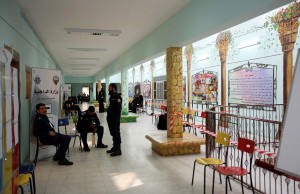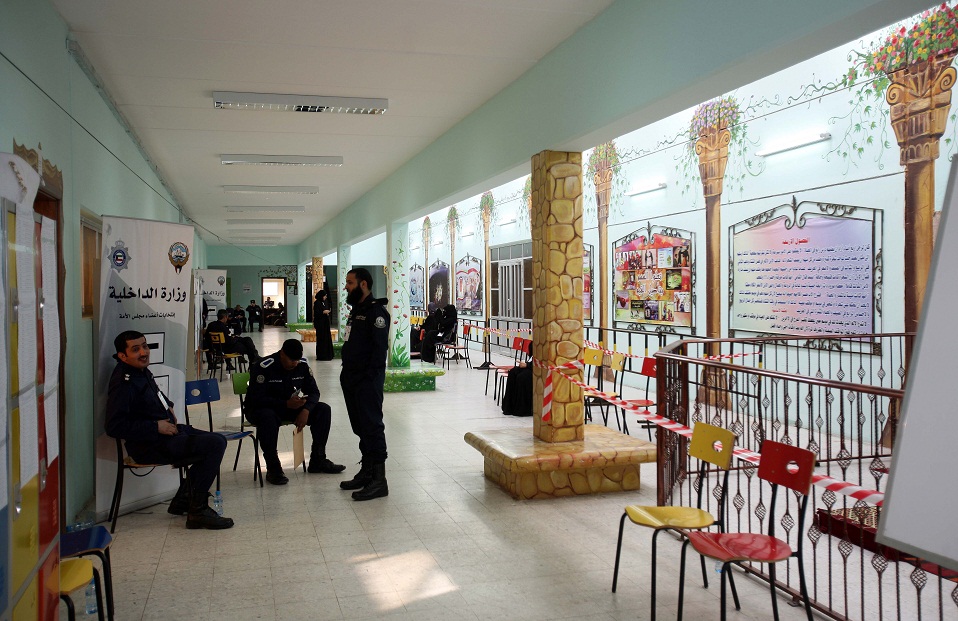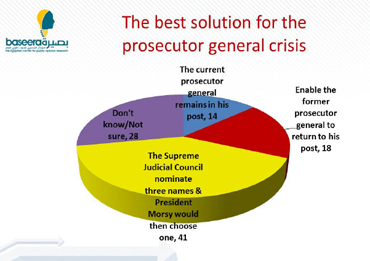
Kuwait (AFP) – Kuwaitis cast ballots Saturday for a second general election in 10 months, but turnout was low after a boycott by the opposition which argues the parliament has lost all its legitimacy.
The vote comes nearly two months after Emir Sheikh Sabah Al-Ahmad Al-Sabah dissolved a pro-government parliament, following its reinstatement in June by a court ruling that also annulled an assembly elected in February.
Predominantly tribal constituencies led the way with the boycott on Saturday as voters appeared to heed the appeal to stay away from polling over a disputed electoral law.
More activity was seen in other districts, but the highest turnout was in districts populated by the Shi’a minority, according to an AFP correspondent and witnesses.
The opposition, which held 36 of the 50 seats in the scrapped parliament, cannot win any in Saturday’s election as it has not fielded candidates among the 306 hopefuls, which include 13 women.
Voter turnout is therefore being seen as the key test between the Islamist, nationalist and liberal opposition and the government led by the ruling Al-Sabah family.
And each side is already claiming success, although it is still too early to draw a conclusion.
“The Kuwaiti people have succeeded in bringing down (this) election by not taking part,” opposition leader and former MP Mussallam Al-Barrak said on Twitter.
Former parliament speaker and opposition leader Ahmad Al-Saadun said Friday’s opposition march and the boycott had taken away “popular and political legitimacy” from the next parliament and government.
Waleed Al-Tabtabai, a former Islamist MP, said on Twitter that turnout would not exceed 15 per cent. In the polls held in February, turnout was about 65 per cent.
No official figures have been released so far but Information Minister Sheikh Mohammad Abdullah al-Sabah told state television that “the turnout has so far been positive”.
Opposition activists later bombarded Twitter with pictures of polling centres either deserted or with only a few voters.
The opposition said it would deploy people to monitor the number of voters casting their ballot for fear the government may inflate the figures.
State media and senior officials continued to urge citizens to cast their vote in order to achieve political stability in the oil-rich Gulf state.
In the area of Salwa, 15 km south of the capital Kuwait City, only a few people showed up after the centre opened.
In the nearby area of Rumeithiya, there was more activity in the predominantly Shi’a constituency but still far below the February poll or the one in 2009.
“I believe that voting is a national duty especially after the emir has urged us,” Nadya Mandani, a public sector employee told AFP after voting in Rumeithiya.
“I am very optimistic that the next parliament will be good and will cooperate with the government to resolve our problems,” she said.
On the eve of the election, the fifth since mid-2006, tens of thousands of opposition supporters staged a massive demonstration to urge voters to boycott the ballot over the electoral law.
Under previous elections, voters were able to pick up to a maximum of four candidates and this was reduced by the amendment to just one. Each of Kuwait’s five constituencies elects 10 lawmakers.
Analysts see little hope the election will bring political stability to the wealthy Gulf state which has been rocked by lingering disputes stalling development despite abundant petrodollars.
OPEC member Kuwait has a population of 3.8 million, but 69 per cent are foreigners and only 422,000 are eligible to vote among Kuwaitis, who number 1.2 million.
Polling closes at 8pm (1700 GMT) after 12 hours of voting.
Ahmad al-Ajeel, head of the National Election Commission, established for the first time, said the results would be announced before midnight.


